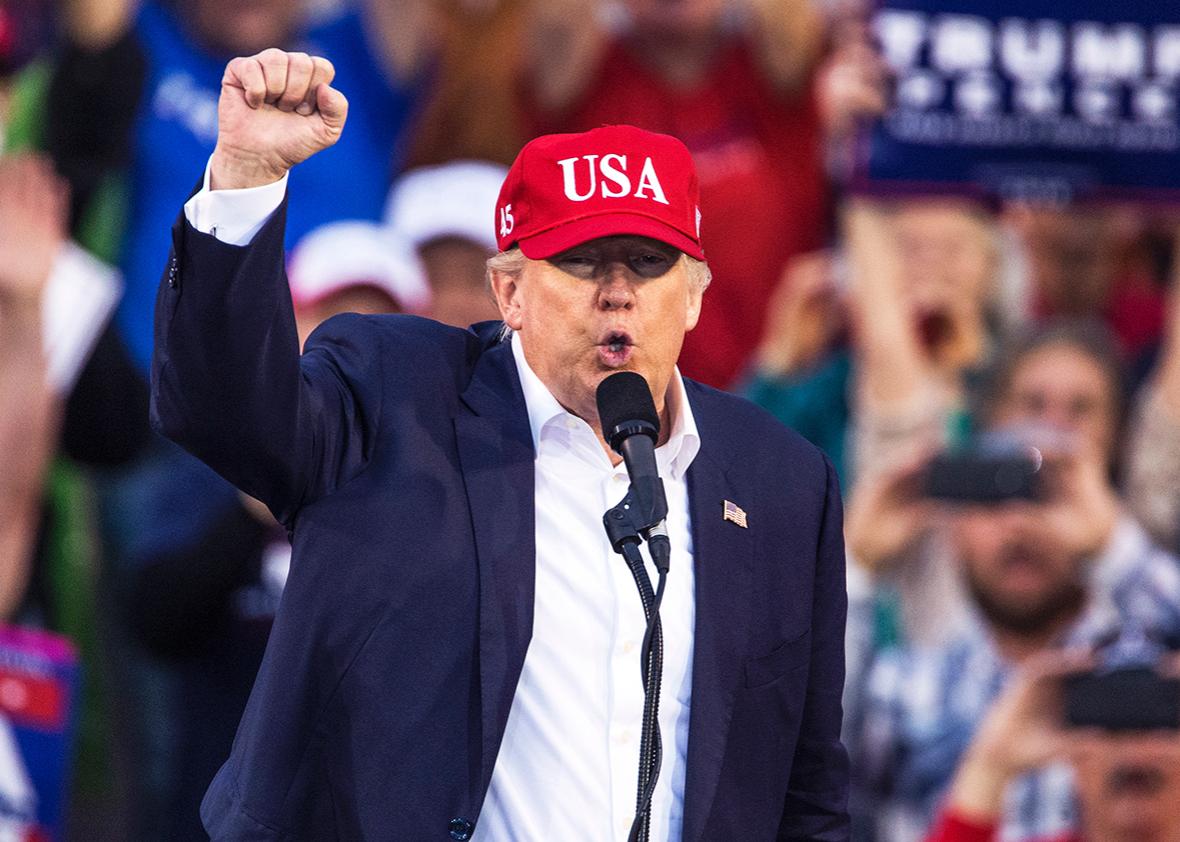On Monday, the Electoral College cast its ballots, and now Donald Trump is officially the next president of the United States. Even now, we still don’t know what Trump will do. Vague promises aside (“We will bring back jobs” or “we’ll stop ISIS”), Trump has said little on policy. We don’t know his priorities for action or his agenda for the first 100 days of his administration. If there is anything we can expect, however, it’s an escalation of his ongoing attack on the norms of politics and civic life.
Trump is defined by his shameless disregard, and even disdain, for the bonds that hold political life together. To win the Republican nomination and then the election, he stoked hatred and intolerance in a demagogic campaign against Hispanic immigrants and Muslim Americans. Since the election, he’s rejected evidence that Russia hacked the Democratic Party and attacked U.S. intelligence agencies for their conclusions.
There’s more. Constitutional scholars have sounded the alarm that Trump is embroiled in massive conflicts of interests tied to his sprawling businesses and debts to foreign banks and other creditors. The knot is so thick that, unless he liquidates his assets and hands them to a third party to place in a “blind” trust, he risks violating the Constitution’s Emoluments Clause. Despite this danger, and his promise to remove himself from his businesses, Trump has leaned into these conflicts. His children, for instance, attend high-level meetings with heads of state and use their father’s prominence to solicit donations to personal causes. Ivanka Trump, in particular, has already joined her father for conversations that have a direct bearing on the business interests of their family.
Likewise, foreign governments have already opened doors for Trump’s businesses, signing permits and resolving legal disputes. The most obvious conflict involves the Trump International Hotel. The lease on the property, issued by the General Services Administration, forbids members of Congress or other elected federal officials from having any part of it. And that’s to say nothing of the more venal examples of corruption, such as foreign governments booking rooms in the hotel or reserving it for events in an effort to curry favor with the incoming president.
All of this—family members as close advisers, conflicts of interest between his business and the business of government—constitutes a massive violation of the norms that drive political conduct and the clear start of a drive toward kleptocratic governance, where the leaders of state use their status to enrich themselves and their families.
As bad as this is, it’s not the most troubling part of Trump’s disdain for norms of governance and behavior. Most troubling is way that Trump is shaping the White House to undermine American pluralism and advance a vision of ethno-nationalist government. Lost in the Trump-stoked controversies of the past month is the fact that he has installed a West Wing team with deep ties to an international movement of white nationalists. The New York Times reports that Michael Flynn, Trump’s incoming national security adviser, recently met with the leader of Austria’s far-right Freedom Party, Heinz-Christian Strache. The Freedom Party, founded in 1956 by former members of the Nazi Party, has signed a cooperation agreement with United Russia, the party of Russian President Vladimir Putin. All of this is in line with Putin as a lodestar for a movement of white nationalists, right-wing populists, and outright Nazis. “Mr. Putin,” writes the Times in a recent story, “is widely revered as a kind of white knight: a symbol of strength, racial purity and traditional Christian values in a world under threat from Islam, immigrants and rootless cosmopolitan elites.”
Trump’s chief strategist, Stephen Bannon, holds something close to this worldview: that the white Western world is caught in a civilizational war with Islam and that in this fight, Putin’s Russia is a potential ally to the United States, not an opponent. “I’m not justifying Vladimir Putin and the kleptocracy that he represents,” said Bannon in a 2014 speech. “However, we the Judeo-Christian West really have to look at what he’s talking about as far as traditionalism goes.” He continued: “I really believe that in this current environment, where you’re facing a potential new caliphate that is very aggressive. … I think we have to deal with first things first.”
Empowering these views—giving state authority to a movement centered on white nationalism—is a direct assault on multiracial democracy and represents a dangerous subversion of a political prohibition on open racism that has sustained American tolerance, as imperfect as it is, for the last generation.
Which is to say that, at minimum, what we have in President Donald Trump is a White House with open and unprecedented conflicts of interest, to say nothing of an economic team with deep ties to the finance industry, that’s poised to shape policy in a way that would enrich Trump and his heirs. To that, add advisers with tangible and ideological ties to a global movement set in opposition to American pluralism and liberal democracy.
Trump is set to undermine much of what Americans take for granted in their government and in their public life. And this matters. Not just because of what it looks like but because—in breaching the norms of governance—Trump threatens the very basis of American democracy. Our system only works when its participants adhere to standards that exist beyond the letter of the law—when they reject practices and ways of politics that don’t break the rules but violate those standards. Trump is president, in part, because one institution—the Electoral College—didn’t reject those practices. The irony is that, if Trump continues on this path of flouting long-standing norms, then the rock on which the Electoral College rests, the American democratic tradition, will start to fracture. Trump needed the habits and institutions of our liberal democracy to become president. He doesn’t much need them anymore.
